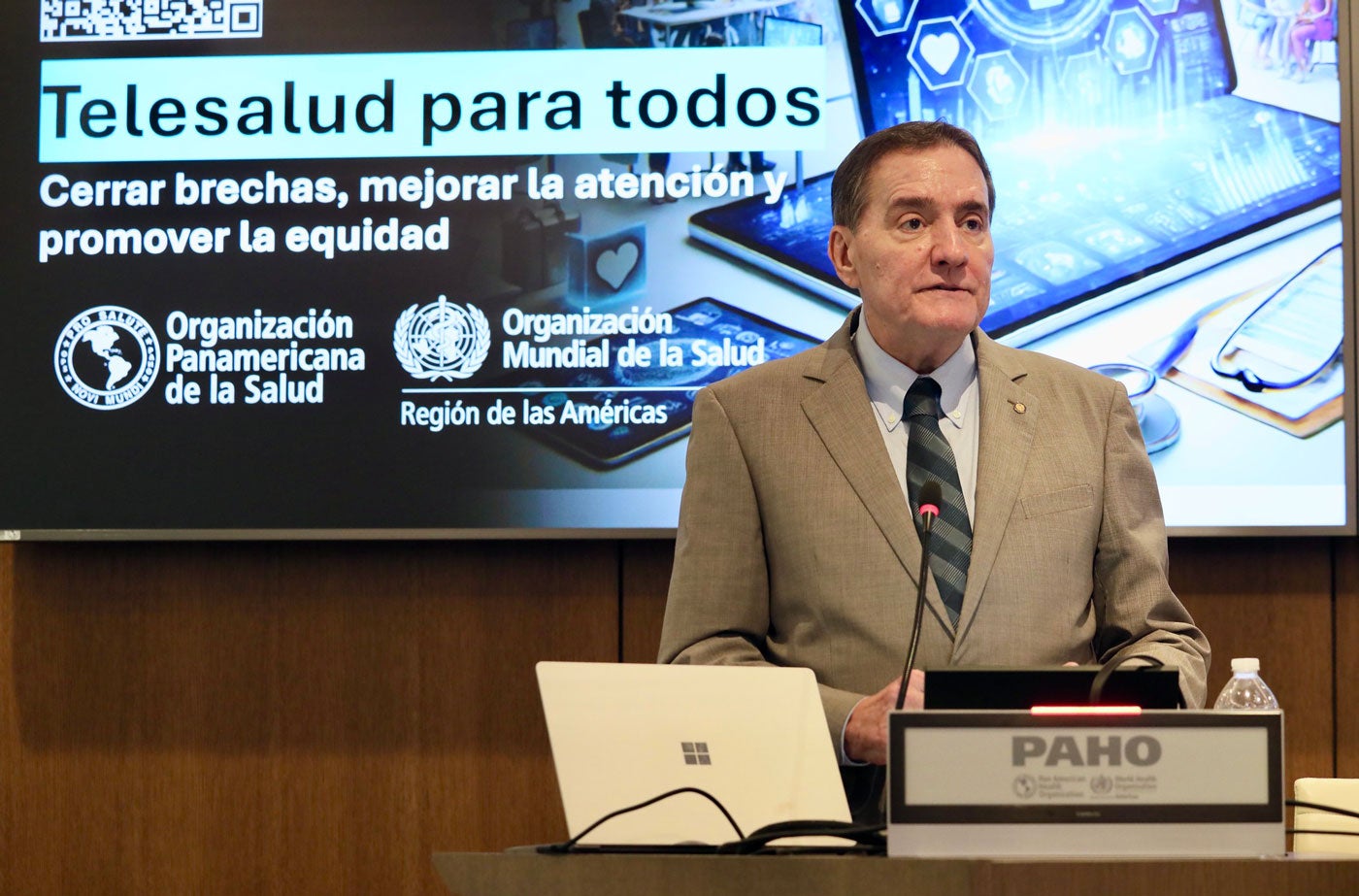
Washington D.C. 3 October 2024 (PAHO/WHO) – High level representatives from ministries of health of the Americas, experts from the Pan American Health Organization (PAHO) and partner organizations met this week to share their experiences implementing telehealth in a bid to accelerate equitable access to health care, particularly for vulnerable and hard-to-reach populations.
Exchanging “experiences, achievements, and ongoing challenges in implementing telehealth” is “crucial as they will inform our collaborative efforts and guide our collective action moving forward,” PAHO Director, Dr. Jarbas Barbosa said.
During the “Telehealth for All: Bridging Gaps, Enhancing Care, and Advancing Equity,”, which took place this week alongside PAHO’s 61st Directing Council, participants explored the potential of telehealth technology in ensuring more equitable and resilient health care systems in the Americas.
Telehealth is a safe and effective way to access health care services, including specialized care, without requiring travel to a health care center, which is particularly advantageous for populations living in remote and hard-to-reach areas. Telemedicine also enables key clinical services to operate regularly and without interruption during a public health emergency.
“The pandemic pushed all of us to use platforms that are readily available to reduce barriers that were acute at the time, but many of these barriers still persist today,” Dr. Barbosa said.
Participants included several high-level officials. During their interventions, Ana Estela Haddad Vice minister of Information and Digital Health, of Brazil, discussed the expansion of telemedicine services in the Amazon. Andrea Albagli, Undersecretary of Public Health of Chile highlighted her country’s experience of utilizing telemedicine for triage purposes. Maria Celeste Savignano, Chief of the Telehealth and Innovation Department of the Garrahan Hospital in Argentina shared her experience in the use of telemedicine services focused on specialized care.
A panel was also held with experts from the World Bank, the Inter-American Development Bank, and the PAHO Revolving Funds. During the session, participants highlighted the importance of partnerships to advance digital health but warned that while accelerating the implementation of telehealth is crucial to achieving health equity, partners and governments must ensure efforts to combat technological illiteracy, so no one is left behind.
To facilitate the expansion of telehealth services in the Americas, PAHO has developed the All in One Telehealth Package to be utilized by countries. This package includes a telehealth platform developed using open-source technologies that can be adapted according to needs and can be easily integrated with existing modules, training courses to facilitate health personnel engagement with telehealth and technical tools to support the implementation of telehealth programs in the Region.
As part of this integral package, through its Regional Revolving Funds, PAHO also offers countries a telehealth kit, which includes a selection of high-quality medical digital devices, tailored for both portable and ultra-portable applications. The kit is designed to enhance healthcare delivery in a variety of settings.




